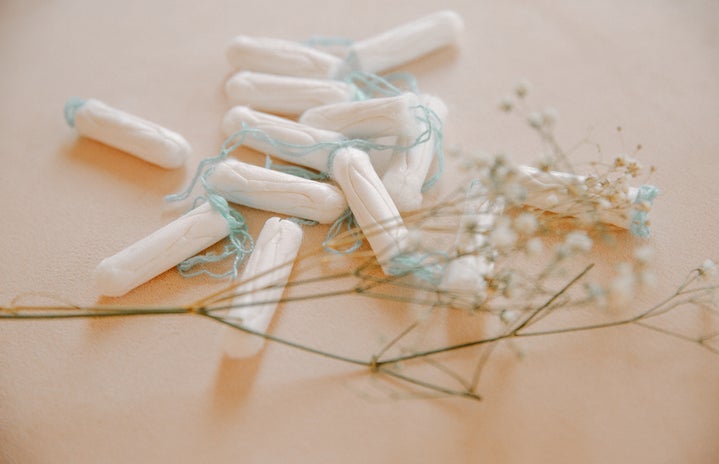Tampon tax, and the overall issue of period poverty, has become increasingly central to social and political discussions in recent years, and we haven’t shied away from covering the topic here at Her Campus. VAT charge on sanitary products was introduced in the UK in 1973, and reduced to 5% in 2001. However, with the emergence of campaigns and organisations – such as Bloody Good Period – alongside countless petitions, the pressure was on politicians to eliminate the Tampon Tax altogether.
It was recently announced that the tampon tax would be abolished in the UK from 1st January 2021. This follows the UK’s departure from the European Union, in which most countries are barred from creating zero-rate VAT charges. In the campaign to end period poverty, this is a landmark achievement, and activists were glad about this progress. Laura Coryton praised the move for ‘ending a symptom of sexism.’ The average lifetime cost of having a period stands at £4800, and taxation on these necessary items only exacerbates this glaring problem. Statistics on the Bodyform website give further proof, stating that 1 in 10 girls in the UK can’t afford menstrual products.
The breakthrough changes in taxation came after Scotland became the first country in the world to provide period products for free. The Period Products (Free Provision) (Scotland) Act 2021, announced November 2020, introduces a requirement for several of public buildings and education institutions to offer free and accessible sanitary products. I will link the article on this from Her Campus Leeds, by Emma Jacob, at the bottom of this article.
So what does the tampon tax abolishment mean in the UK? Undoubtedly, this is a huge development, being the first time we have seen zero VAT on sanitary products in 48 years. It’s an important stride forward in the fight for fair accessibility, and reversing the outdated, totally sexist measure sends out a positive message about our progression as a society.
However, as usual, there’s a significant amount still to be done. One point to focus on is the disturbingly long list of MPs who voted against the elimination of tax on period products this time. You can see the list here. I encourage you to have a look; maybe even search for your local MP. Bear in mind who you see on which list and where they stand on this issue of rights. This is evidence that there is work still to be done when it comes to the societal attitudes which underpin the unfair circumstances of period poverty.
Read Emma Jacob’s article ‘Why Scotland’s New Law Ensuring Free Access to Period Products is So Important’ here for more information on the significance of accessibility to period products for all.
Words By: Laura Murphy
Edited By: Hannah Martin


